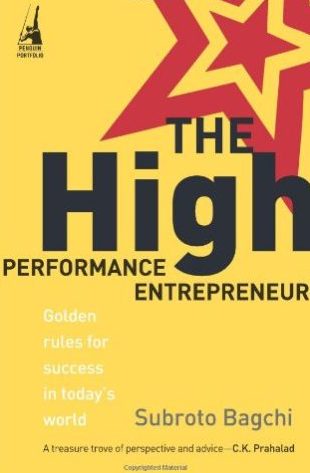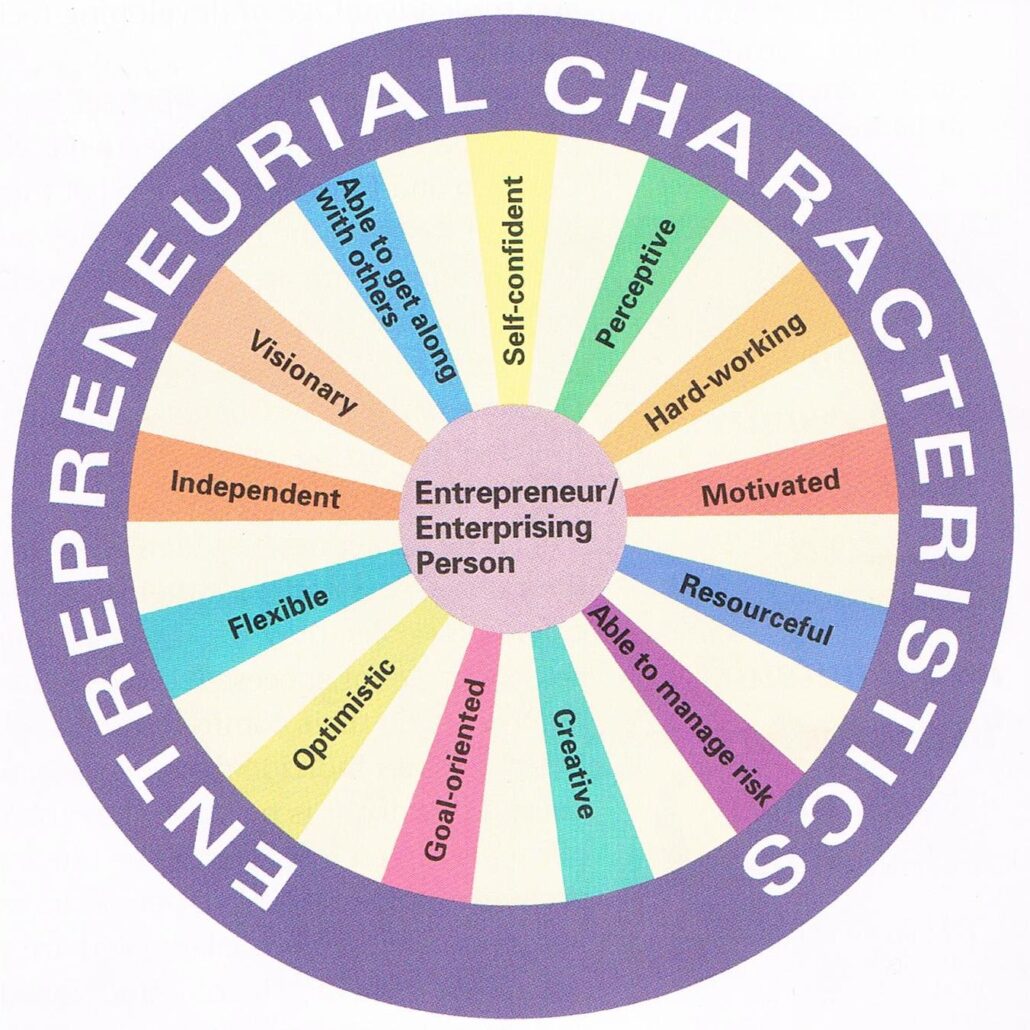The High Performance Entrepreneur
Author: Subroto Bagchi
Genre: Entrepreneurship

Subroto Bagchi is a prolific writer with books like Go Kiss The World, MBA at 16, The Professional etc. to his credit. He (and Ashok Soota) were Co-founders of Mindtree which scaled up to USD1bn and 23000 employees, and Bagchi later became its Chairman. Bagchi himself came from a very humble family in Odisa.
The book advocates teaching entrepreneurship as a subject to the young who will be major workforce in the coming years. It will not be possible to create those many jobs for the unemployed. Entrepreneurship is the only way to create jobs and wealth. The High-Performance Entrepreneur does not tell a magic plan for the being a successful entrepreneur. But it does give right advice (gained through experience) that a reader can follow to achieve success. To start with, this book explains the difference between high-performance entrepreneurship (scale!) and mere self-employment (working without a boss, but in a small setup like a shop or clinic). The former majorly means creating wealth to make a change in individuals, society and country, something that the likes of Murthy, Steve Jobs, Bill Gates, Azim Premji etc. were able to do.

The first chapter “When do I know I am ready?” is brilliant and answers all fundamental questions on whether or not we are entrepreneurial by design. Do we only have an aha idea or an actual line of business idea? Are we ready to work 70 hours a week? That author compares starting an own enterprise with being a mother: “one knows when the time has come to waive off all caution and comfort and instead embrace the sign of life deep inside you and you would do anything to bring it into the world.” Having said that, sometimes people start their own enterprise for all the wrong reasons mentioned and explained well in the book.

The next chapter “Profile of an Entrepreneur” lists down various characteristics without which one should not think of starting a venture:
- Self-Confidence is the #1 attribute
- Entrepreneurs value their sense of freedom, but they are also very disciplined.
- Entrepreneurs work hard and are extremely goal oriented.
- Entrepreneurs are flexible, opportunistic, and recognize the power of ‘emergence’
- Entrepreneurship is about egolessness
- Entrepreneurs love money
The third chapter “Sensing the right opportunity” provides a detailed insight on the two invariable things that lead to successful entrepreneurship – a great idea that leads to family of ideas and solid implementation. This has been explained with the help of three very apt examples – Café-Coffee Day, Air Deccan and Biocon.
The fourth chapter talks about the crucial aspects of choosing the team. The author starts with his own experience and how it affected his sense of hiring. The author lists nine characteristics with examples: 1. Proven competence, ability to pull one’s weight, 2. Complementary Composition, 3. Multitasking capability, 4. Shared Vision, 5. Transparency, 6. Personal integrity and mutual trust, 7. Ability to question each other and take disagreement in stride, 8. Resilience, 9. Sense of humor.
Building DNA, Mission, Vision and Values for the company is the next crucial step to build an organization. Then comes answering prospective investors, financial institutions, third party and others interested in your business. The big question is: How are you different? If you are unable to tell them that, they will go to your competition. Next is to write a business plan, which most people find very difficult. The book mentions a checklist to address as part of the business plan. The moment of raising capital is the moment you breathe life into unborn child. The chapter talks about choosing the right investor. If you have a good idea and a team in place that will sweat out with you, there is no dearth of capital. One should choose the most appropriate vehicle for funding their business because there is no one-size-fits-all solution here. The book also talks about getting good people and keeping them, building a process focused organization, keeping right customers basis four factors: the techno managerial value that customer brings, trust, a sense of equality, & a commercially win-win deal.

A lot of times in the book, the author emphasizes on loving money and the next chapter talks just about that & managing your money. The four things that an entrepreneur always has to remember are: you must love money, you must be excited about generative power of wealth, you need to respect money, you need to be transparent and maintain clean record of all transactions.
The next aspect is to understand how brands are built. A brand is the communication of your inner worth over a period of time. A company is like a river, thus Emergence and willingness to change. Emergence is about comfort with process of exploration and an inner voice conviction that it would eventually lead to a higher level of progress. It is also crucial to manage adversity since adversities are inevitable and must be respected as rites of passage. The right way to handle them is to plan ahead for them.

The book also describes IPO. The primary objective of IPO is to raise additional money from the investing public so that you can further expand the business and it must help investor get a higher return. The chapter is explained with real life examples in detail.
The book ends with author saying three phrases that exemplify what entrepreneurship is all about: developing a service centric mindset, the creation of unusual value and finally, a deep sense of leaving something behind.
Bagchi also offers some personal lessons:
- To be world class, you begin and end with quality
- It is about what you know, not who you know
- Great organizations are built by people with an ‘abundance’ mindset
- A great enterprise is built by people who are proud to pay their taxes right
- To be world class, you have to be hierarchy free
- Leaders exemplify personal integrity
- Great enterprises believe in setting up hairy, audacious goals
- World class organizations are deeply inclusive
- The organizations’ resources are not ‘my’ resources
- It is about ordinary people delivering extraordinary results
- Admirable organizational prosperity begins with austere leadership
- Play it by the book
Why you should read this book: Entrepreneurship in itself is a very deeply rewarding journey. This book offers a thorough, detailed, step-by-step guide by an experienced mentor, and intersperses multiple practical and real life examples. The language, and the way of writing the book, is very easy to understand and engaging.
Goodreads Link: The High Performance Entrepreneur by Subroto Bagchi (goodreads.com)

 This information will never be shared with third party
This information will never be shared with third party
Post A Comment
Want to join the discussion?Feel free to contribute!